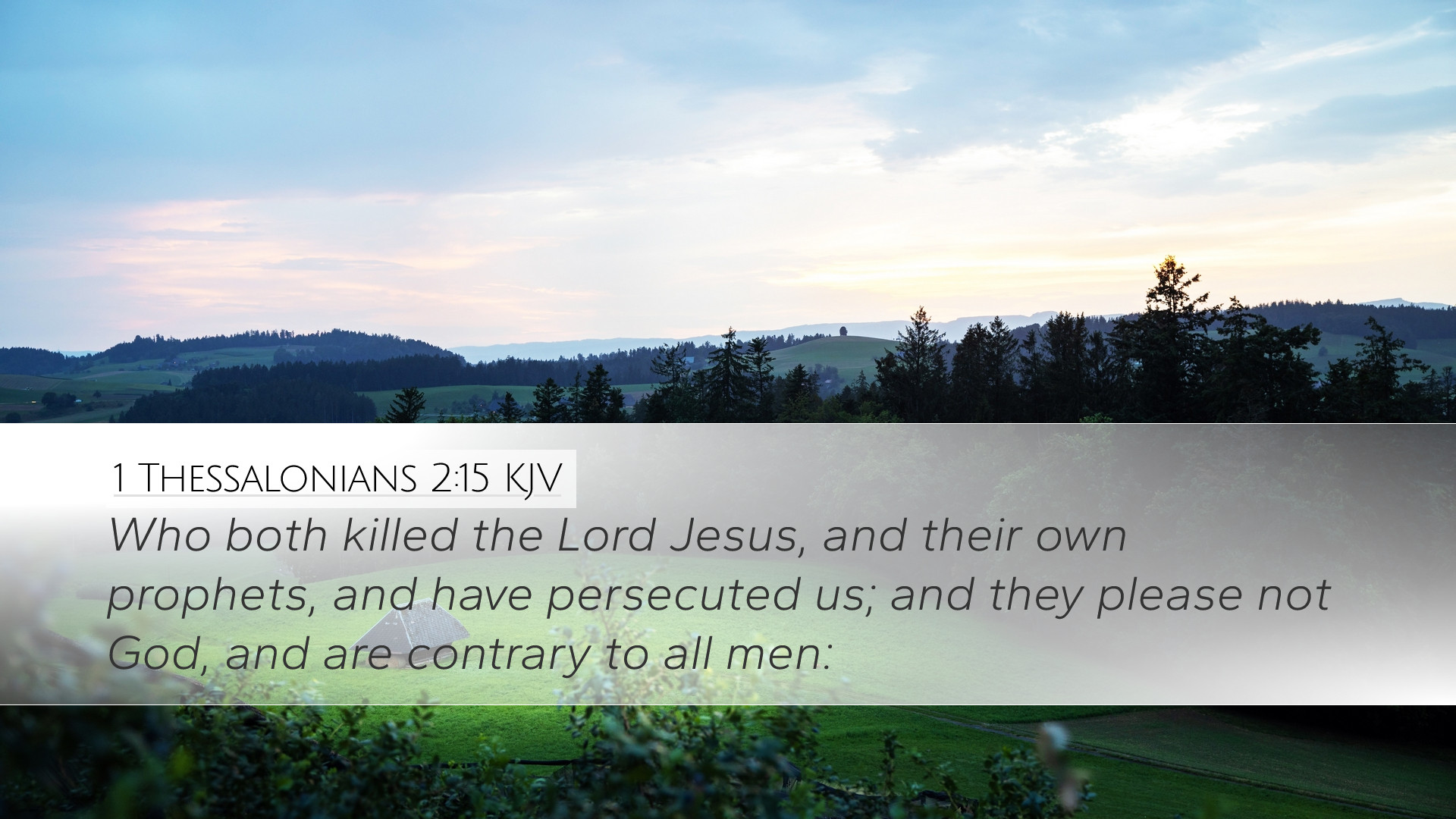Commentary on 1 Thessalonians 2:15
Verse Context: 1 Thessalonians 2:15 states: "Who both killed the Lord Jesus, and their own prophets, and have persecuted us; and they please not God, and are contrary to all men." This verse encapsulates Paul's admonitions regarding the Jewish people's actions against God's messengers, underscoring deep theological and historical implications.
The Historical Context
Matthew Henry: Paul, writing to the Thessalonians, emphasized the persecution faced not only by Christ but also by the prophets and the apostles. Henry notes the danger of religious hypocrisy, as those who supposedly hold the truth conflict with the very messengers of divine revelation.
Albert Barnes: Barnes points out that the early church faced significant persecution, particularly from the Jews who were resistant to the Christian message. He highlights that the apostles, while proclaiming the Gospel, were continuously threatened by those who felt their traditions and authority were challenged.
Theological Implications
Adam Clarke: Clarke elaborates on the gravity of Paul's indictment against those who rejected the Gospel. He emphasizes that this rejection is not a mere historical fact but speaks to a broader theological conflict between divine revelation and human authority. The persistent opposition to God's messengers has implications on one's spiritual state and societal actions.
Key Insights
- Opposition to God's Message: This verse serves as a sober reminder of how humanity often responds to divine truth with rejection and hostility.
- The Nature of Persecution: All three commentators recognize the nature of persecution as not just physical but also ideological, highlighting the struggles faced by believers when their message contradicts societal values.
- Historical Repercussions: The actions against Jesus and the prophets continue to resonate today, suggesting a pattern where truth is often silenced by those in power.
Practical Applications
Moral Duty: Pastors and leaders must understand that preaching the Gospel may lead to opposition, and they should prepare their congregations to stand firm in faith despite persecution.
Encouragement in Suffering: The verse reinforces that suffering for the faith is a common experience. This perspective can provide hope and strength to those who face trials for their beliefs.
Conclusion
The verse from 1 Thessalonians 2:15 serves not only as a historical testament to the early church's struggles but also as a contemporary reminder of the enduring nature of opposition to divine truth. The combined insights of Matthew Henry, Albert Barnes, and Adam Clarke encourage a deeper understanding of the interplay between faith and societal challenges, urging believers to remain steadfast in their commitment to the Gospel.


